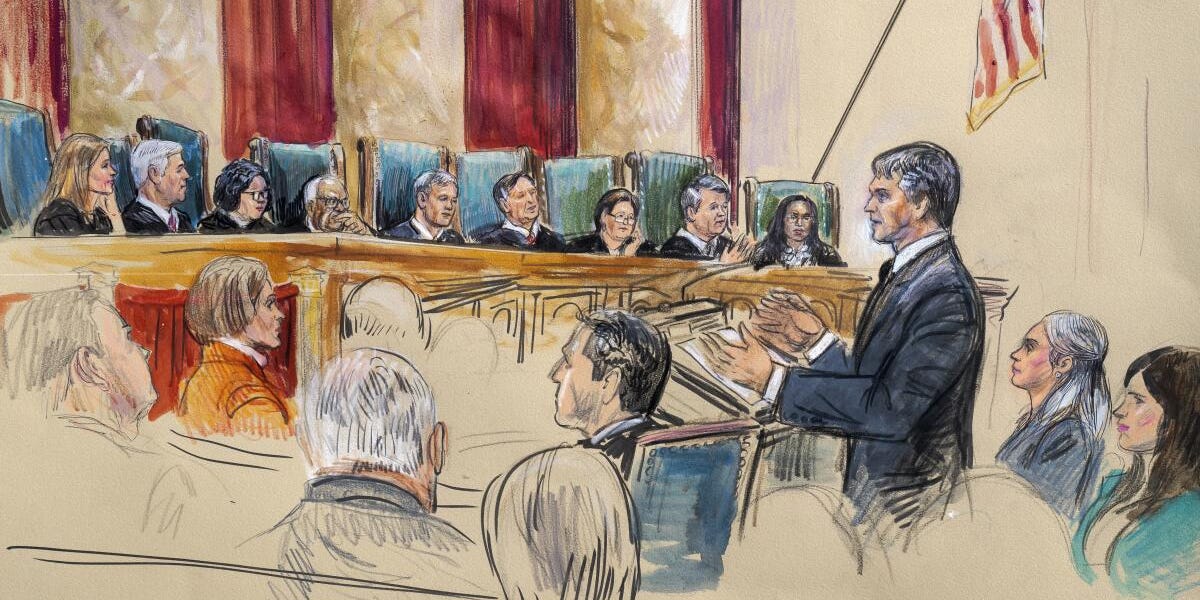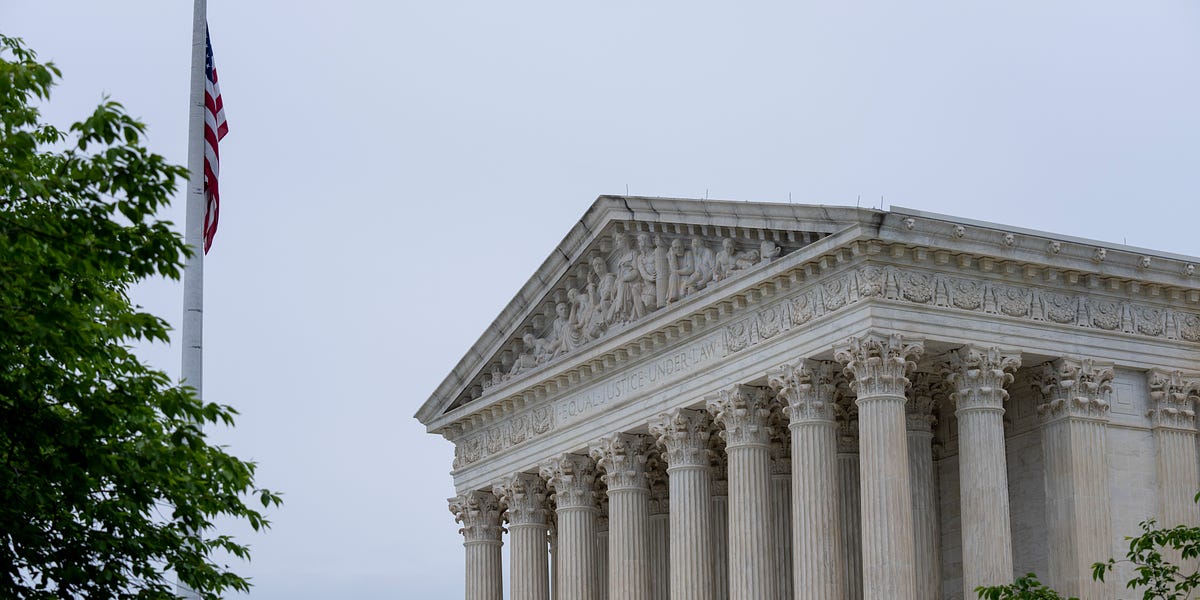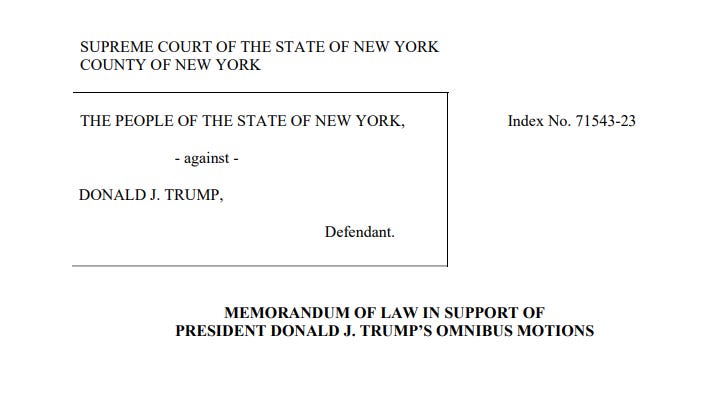Part 3
That takes us back to today’s argument about the Trump candidacy before the Supreme Court. The bottom line is, it’s almost a certainty that Trump will stay on the ballot in Colorado. There were at least seven votes, and possibly nine, for that result—even if the Justices end up taking different paths to get there.
The most likely consensus or near-consensus path for the Justices to reverse the Colorado Supreme Court’s decision is one that rejects the business of a single state to decide a candidate isn’t eligible to hold a federal office. There was lots of technical legal argumentation around this point, but it was Justice Kagan who put it into plain English, telling the lawyer for the Colorado voters that he needed a persuasive argument for why Colorado should get to decide the issue for the country. He didn't have one.
The Court seemed inclined to gloss over the question of whether Trump is an insurrectionist in favor of other escape hatches. At one point, Justice Amy Coney Barrett churlishly asked if the Court was supposed to watch videos of the speeches on the Ellipse. Justice Brett Kavanaugh pointed out that Trump has never been charged with insurrection under federal law.
There was also serious discussion of whether Trump is covered by Section 3. This is the argument that caused the trial court in Colorado to conclude that even though he was an insurrectionist, he could remain on the ballot because a president is not an officer of the United States. It resurfaced here with force, and with Justice Ketanji Brown Jackson in the same camp with some of the conservative justices. Her reasoning seemed to be that the law doesn’t explicitly reference the presidency and that reflects the concerns when the 14th Amendment was adopted, which revolved around preventing former confederates from infiltrating state government and legislatures and reclaiming power.
Trump’s lawyers also argued that the 14th Amendment is a constitutionally imposed requirement about a person’s eligibility to take office, not one about whether they could appear on a ballot. Early in the argument, they seemed to suggest that it would be premature to rule Trump couldn’t appear on the ballot now and that the issue would only be live if Trump were elected, at which point, and if two-thirds of both houses of Congress didn’t vote to “remove the disability” and permit him to take office, the Court could consider whether he was eligible to become president again.
That is the worst of all possible worlds. It’s the kick the can down the road and take the country into full-blown chaos approach. Surely, the Court must reject it in favor of a decision that covers all states and both the primary and general elections, along with Trump’s eligibility to hold office. Certainty is critical in this time of uncertainty in the country. The Colorado voters’ lawyer noted that while Congress might vote for forgiveness for Trump down the road, that didn’t make him eligible to hold office now, comparing him to someone who is convicted of a crime. Although that person might, theoretically, be pardoned down the road, from the time of conviction they are subject to the consequences of that decision, unless and until they’re pardoned. The Supreme Court owes the country certainty on all of these matters.
Now, we wait on the Court.
In the meantime, the country will continue to discuss the matter. But, imagine a presidential election where the Democratic candidate had engaged in insurrection. A Clinton, or Obama, or Biden. Republicans would be demanding their removal from the ballot in every state in the country. There would be no hand-wringing over removing a choice from the voters, no talk about preferring a democratic process that lets voters make the call. No Republican would express concern that removing their Democratic opponent from the ballot would let them talk about what a victim they were and incite their base to further violence.
The courts will do what the courts will do, and they will do it at their own pace. The jury is still out on whether the institution the country has always turned to to decide its most divisive, difficult issues is up to dispensing justice when it comes to Donald Trump. On the one hand, the courts performed magnificently in the wake of the 2020 election, when Trump bombarded them with challenges to its outcome. Despite the Supreme Court’s debacle of public confidence and rulings in cases like
Dobbs, which took away 50 years of women’s rights, they have consistently applied the rule of law to Trump, as they did, for instance, when his tax records were subpoenaed for the criminal case in Manhattan. But, on the other hand, they move at a slow, sometimes ponderous pace while the clock continues to race towards the 2024 election.
Today, Thursday February 8, 2024, the Supreme Court heard oral argument in the 14th Amendment disqualification case. Donald Trump, the petitioner, asked the Court to restore his place on Colorado’s primary ballot. The Colorado Supreme Court removed him from it in December, finding Trump had...

joycevance.substack.com




